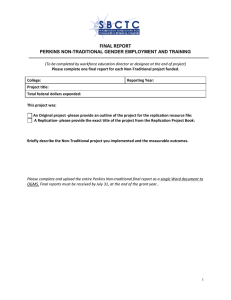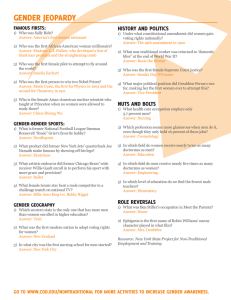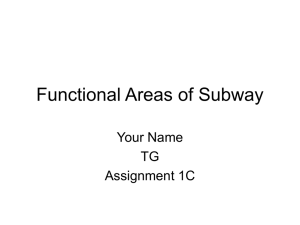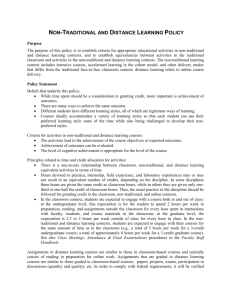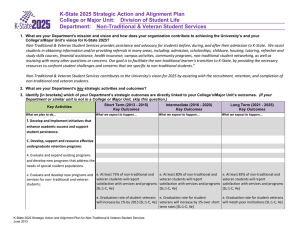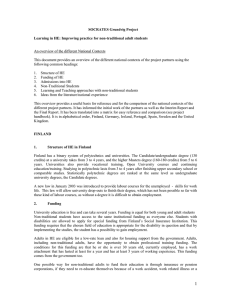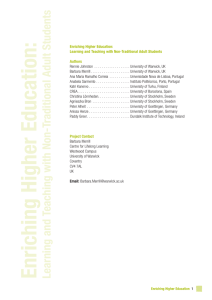Non-Traditional Students: Advantages and Challenges
advertisement
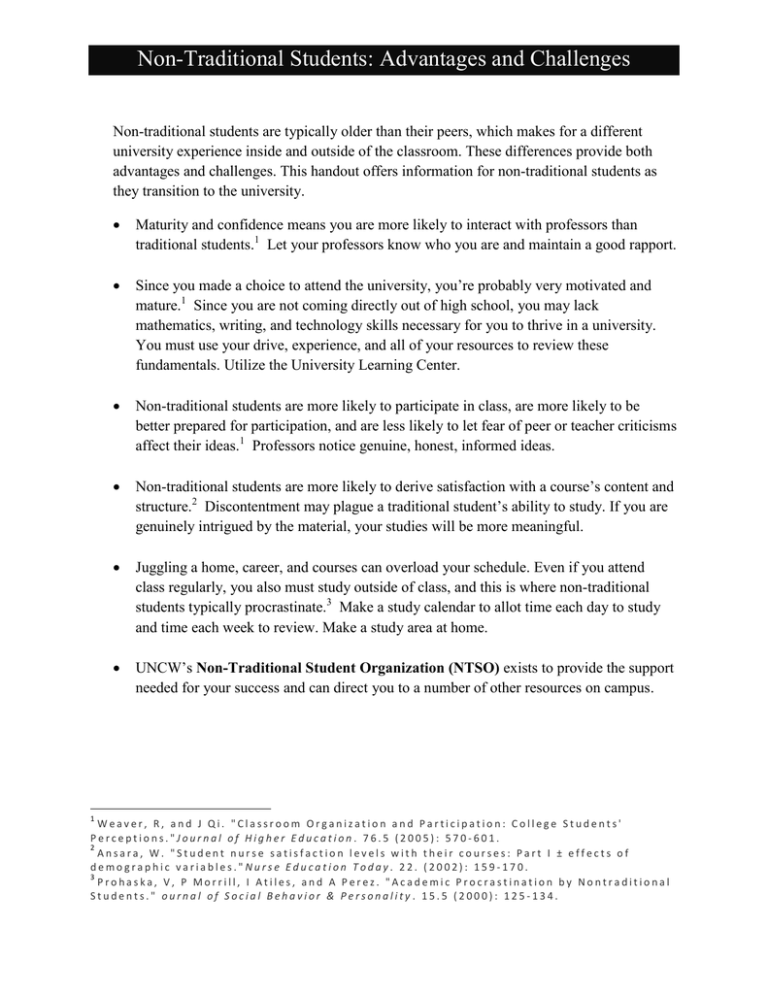
Non-Traditional Students: Advantages and Challenges Non-traditional students are typically older than their peers, which makes for a different university experience inside and outside of the classroom. These differences provide both advantages and challenges. This handout offers information for non-traditional students as they transition to the university. 1 Maturity and confidence means you are more likely to interact with professors than traditional students.1 Let your professors know who you are and maintain a good rapport. Since you made a choice to attend the university, you’re probably very motivated and mature.1 Since you are not coming directly out of high school, you may lack mathematics, writing, and technology skills necessary for you to thrive in a university. You must use your drive, experience, and all of your resources to review these fundamentals. Utilize the University Learning Center. Non-traditional students are more likely to participate in class, are more likely to be better prepared for participation, and are less likely to let fear of peer or teacher criticisms affect their ideas.1 Professors notice genuine, honest, informed ideas. Non-traditional students are more likely to derive satisfaction with a course’s content and structure.2 Discontentment may plague a traditional student’s ability to study. If you are genuinely intrigued by the material, your studies will be more meaningful. Juggling a home, career, and courses can overload your schedule. Even if you attend class regularly, you also must study outside of class, and this is where non-traditional students typically procrastinate.3 Make a study calendar to allot time each day to study and time each week to review. Make a study area at home. UNCW’s Non-Traditional Student Organization (NTSO) exists to provide the support needed for your success and can direct you to a number of other resources on campus. Weaver, R, and J Qi. "Classroom Organization and Participation: College Students' Perceptions."Journal of Higher Education. 76.5 (2005): 570-601. 2 Ansara, W. "Student nurse satisfaction levels with their courses: Part I ± effects of demographic variables."Nurse Education Today. 22. (2002): 159-170. 3 Prohaska, V, P Morrill, I Atiles, and A Perez. "Academic Procrastination by Nontraditional Students." ournal of Social Behavior & Personality . 15.5 (2000): 125-134.
